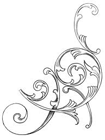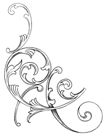WA Darlington, The Telegraph
April 23, 2014
William Aubrey Cecil Darlington (1890-1979) wrote a comic novel in 1920 called Alf’s Button, which was adapted into several films. He was for many years the Drama Critic of the Daily Telegraph and this ‘Op-Ed’ comment piece appeared on page 16 of the newspaper on April 23, 1964, to mark the 400th anniversary of William Shakespeare.
‘Shakespeare Comes Full Circle’
W. A. DARLINGTON traces the changes in the plays’ production from the Globe Theatre to the vehement realism of the present-day revivals.
TODAY marks the quatercentenary of the birth of William Shakespeare, and the man himself has been in his grave at Stratford-upon-Avon for nearly 350 of those 400 years.
Yet Shakespeare the dramatist has never been more alive than he is at this moment. He not only holds our stage; he dominates it. Never in all their long history have his plays been more often produced, more popular, more widely known or better understood than they are now.
This may seem, at first sight, to be an extravagant statement; but I put it forward as plain fact I make no claim that it is through any transcendent virtues of their own, that the leaders of our present-day stage are able to do better justice to Shakespeare than any of their predecessors. We have some admirable Shakespearean actors, it is true; but I am not suggesting that any of them outrank the great ones of the past.
What I am suggesting is that we are the lucky generation who live at that precise point in the theatrical history when Shakespeare has been enabled to come into his own again after centuries of enforced exile. It just so happens that in our time – by which I mean the past 25 to 50 years – the mechanics of the stage have been revolutionised. The increasingly bold and imaginative use of electric light and electric power has given our stage a speed and freedom such as it has not enjoyed since the Elizabethan platform stage was put out of use by the Puritans. […continued]
Read Full Story








Comments